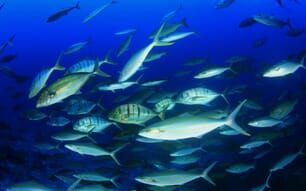The study could help policymakers develop marine strategies that are more responsive to public preferences, its authors say.
Marine strategies are usually based on information from experts, including scientists and policymakers. This study, conducted under the EU CLAMER project , argues that it is important to also consider public concerns and priorities in these initiatives, because public support is key to successful policy.
The researchers conducted a survey into public perceptions of the marine environment to help inform policy. Their online questionnaire was completed by 10,106 people in 2011 across 10 European countries.
The respondents represented a cross section of ages, gender and geographical region for each country. The researchers note the significance of studying the European public’s views, as many European countries and the EU play an influential role in international marine affairs.
When participants were asked to write down the three most important marine environmental problems that immediately come to mind, the most common answer was pollution, listed by 33per cent of respondents. This was followed by overfishing (eight per cent), coastal erosion (five per cent) and wildlife conservation (five per cent).
Participants rated their levels of informedness and concern about specific issues on a scale of 1-5 (1=not informed/concerned at all, 5=very informed/concerned). They felt most informed about: pollution, melting sea-ice, overfishing, sea level rise and coastal flooding. Average informedness scores for these ranged between 3.13 and 3.32. They felt least informed about: acidification, invasive species and jellyfish blooms (score range: 2.2-2.5).
Most relied on television (82 per cent) and the internet (61per cent) to learn about the marine environment. They trusted university academics and NGOs as sources of information much more than they trusted government and industry sources.
Generally, they showed most concern about the issues that they were most informed about, including pollution (concern score: 4.18) and overfishing (3.9). They expressed less concern for subjects which they said they knew little about, including aquaculture (3.39) and jellyfish blooms (3.31). Acidification was an exception to this pattern: respondents were relatively concerned about this issue (3.52), despite suggesting they were not very well informed about it.
Participants were also asked to indicate which three of 11 marine-related policy areas should be prioritised by the EU. The top answer was pollution (59 per cent), followed by overfishing, cutting greenhouse gas emissions and greater regulation of commercial activities at sea (e.g. oil extraction), which were each prioritised by 37 per cent of respondents.
The majority of respondents (57 per cent) did not believe their individual actions could be effective in tackling marine degradation. The researchers therefore highlight the need to encourage citizens to individually and collectively improve marine health. However, simply giving people scientific information is not enough to bring about behavioural change, they warn. Two-way engagement between scientists and the public is more likely to trigger greater concern and action. This could take place through open discussions and forums, for example.
Source: Gelcich, S., Buckley, P., Pinnegar, J.K., et al. (2014). Public awareness, concerns, and priorities about anthropogenic impacts on marine environments. Proceedings of the National Academy of Sciences. 111(42): 15042–15047. Doi:10.1073/pnas.1417344 111.

